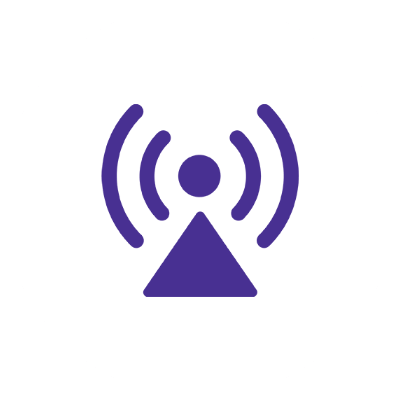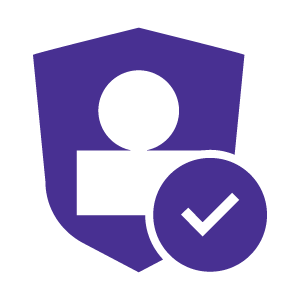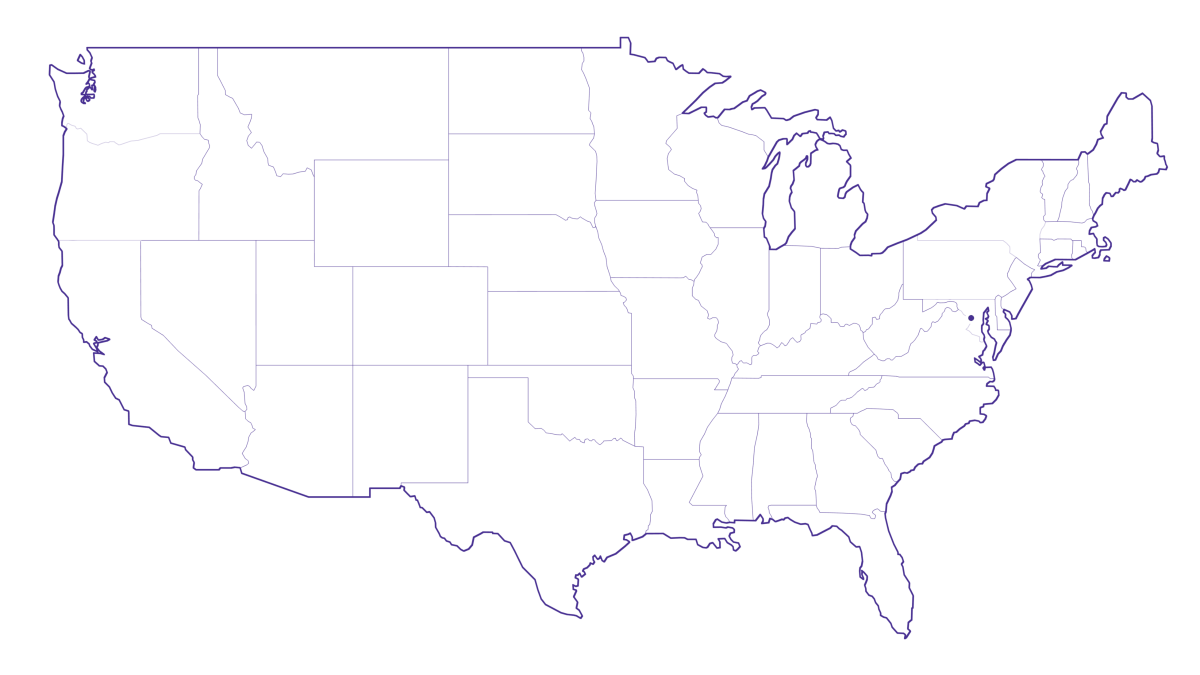6 internet security tips to keep you secure
Video tutorial: Ask the Expert: Internet security tips, with cybersecurity expert Bruno Aburto.
How to stay safe online
There has been an increase in cybercrime since the beginning of the pandemic, which experts attribute to the increase in the number of people working from home. This leaves remote workers more vulnerable to attacks by hackers because at home they don’t have company protections such as corporate malware protection.
Here are a few Internet security tips to ensure your safety online.
Security tips you’ll learn:
Identify phishing attacks
Periodically, you may receive fraudulent email messages appearing to come from a valid source. These emails are generally referred to as SPAM or ‘Phishing’ messages.
Over 80% of all reported security incidents are phishing attacks and Google blocks 100 million phishing emails each day.
Protect against phishing scams
To protect yourself and your family from phishing scams:
- Be suspicious of any unsolicited emails asking for personal information.
- Always report fraudulent or suspicious emails.
- Enter your own URLs to a web browser if it looks suspicious.
- Make sure you have an updated anti-virus program and a firewall.
- Several browsers also have an anti-phishing feature you can switch on to protect your computer from phishing scams.
- For more information about Internet fraud and tips for identifying fraudulent emails and web sites, please visit www.fbi.gov/scams-safety/e-scams.

Enforce multi-factor authentication (MFA)
Multi-factor authentication (MFA) has become a standard security practice for defending our most sensitive information from getting into the hands of the bad guys.
Based on studies from Microsoft, your account is more than 99.9% less likely to be compromised if you use MFA.
You may be most familiar with MFA when you log into your bank account.
In most cases you’re prompted to enter a passcode via a text message, email, or phone call after signing into your account.
However, this isn’t the most secure method as hackers can bypass text and phone based authentication.
Instead, it’s recommended that you use an application based authenticator and even better a hardware token such as a YubiKey.
Learn more: How to secure your mobile phone from hackers

eero Plus
eero Plus protects your family online with a password manager to safely create, store and share passwords, virus and malware protection and a VPN that lets you browse the web safely and securely.
Consider your social sharing and passwords
To minimize the risk of your personal information getting into the wrong hands, it’s best to share sparingly on social media and create unique and hard to decipher passwords.
Many social networks allow you to share a wide range of information including everything from your high school alma mater to your pet’s name. A completely filled out profile could actually supply the answers to security questions that are used to retrieve your passwords.
The key here is to be selective about the amount of information you choose to provide in your profile.
Password complexity
When creating passwords consider following these complexity rules:
- Password must not contain the user’s account name or more than two consecutive characters from the user’s full name.
- Password must be six or more characters long.
- Uppercase characters A-Z (Latin alphabet)
- Lowercase characters a-z (Latin alphabet)
- Digits 0-9
- Special characters (!, $, #, %, etc.)
In addition, avoid using the same password across multiple sites.
You can check if your password has been compromised across the web by visiting haveibeenpwned.com.
The technology gap
You deserve better internet
5G Home Internet Fixed Wireless Access uses radio waves which are impacted by obstacles like buildings and trees, resulting in reduced reliability.

Remove malware
The first step to defeating malware is simply recognizing the signs that something is wrong with your PC. Signals include unusually slow performance, warnings from security programs you didn’t install, browser pop-ups when no browser is actually open, and much more.
Secure your PC against malware
If you recognize any of these warning signs, follow one or all of these options to remove malware:
-
- Update Anti-virus software
- Revert to safe mode
- Turn off your internet

Use a VPN
Cybercrime complaints were up 400% during the Covid-19 pandemic, as more employees worked from home. A VPN can be the first line of defense against cyber attacks.
Benefits to using a VPN
- A VPN can secure your network by stopping people, software and web browsers from being able to access your connection. That ensures the information you transmit and receive is secure and anonymous.
- VPNs encrypt your information so it’s useless to anyone who manages to intercept it.
- Using a VPN can help you avoid data caps set by your provider that can slow down your internet.
Protect your network with a whole home system like the eero Plus*, which includes a VPN.
*eero Plus requires subscription to Whole Home WiFi powered by eero.
Set up a personal firewall
A personal firewall acts as a filter between the internet and your home network. It protects your personal and financial information by alerting you when someone, such as a hacker, tries to access your network and denies them entry. Find out which personal firewall is right for you.
Build your plan
Your perfect plan is just a click away
Get the speeds, WiFi, mobile and TV plans you need all at an affordable price. Bundle your services with Astound and see how much you can save.

Frequently asked questions
What is home network security?
Home network security is the protection of a network that is connected to internet of things (IoT) or smart home devices, which include routers, computers, smartphones, smart appliances, WiFi enabled baby monitors, cameras, and more. Without proper internet security precautions, these interconnected devices can pose a significant security risk to your personal data and privacy.
How do you stay safe online?
There are a number of ways to stay safe online which include checking for HTTPS padlocks on browsers before entering credit card information when shopping online, being aware of email phishing scams, creating unique and strong passwords, securing your WiFi router, limiting the amount of personal information shared on social networks, preventing and removing malware from infected devices, placing family computers in high trafficked areas to prevent children from viewing unsafe content, and monitoring internet usage on your home network.
How do I monitor internet usage on my home network?
You can monitor internet usage on your home network by implementing parental control tools such as content filtering to block access to websites matching unwanted categories, access scheduling which allows you to set a weekly schedule for internet access, and social media tracking to limit your view to just general post and interactions that contain certain words you may deem inappropriate.
How do I secure my WiFi router?
You can secure your WiFi router by changing the default password and creating a strong and unique password for your network. If available, use as stronger encryption standard such as WPA or WPA2 over WEP. Many WiFi routers also have a firewall built in which can be enabled to provide an additional layer of security for your home network. Finally, consider enabling a wireless media access control (MAC) filter. Every device has a unique MAC address. When MAC filtering is enabled it will only allow devices to connect to your network if its MAC address has been added to the filter list.
How do I secure my password?
To secure your password it’s important to not only use a unique password but also differentiate your passwords across all of your accounts. If you use the same password across all platforms and an identity thief accurately guesses your password, they now have access to all of your accounts. In order to create a strong password consider substituting some of the letters for numbers, try spelling a word backwards, use special characters, or use credible online password generators.
Build the perfect plan
Get the speed, WiFi, TV, and security that’s just right for you.
*Internet speeds may vary & are not guaranteed. Certain equipment may be required to reach advertised speeds. DOCSIS 3.1 modem with 2.5GE physical LAN port is required for 1 Gigabit speeds and higher. See astound.com/yourspeed for why speeds may vary. To view Astound’s FCC Network Management Disclosure see astound.com/policies-disclaimers. Limited time offer, subject to change without notice. Advertised promotional price valid for duration of the stated promotional period from time of service activation. Regular rates apply after promotional period ends. Equipment not included and is extra. Modem required for Internet service. Enhanced Wi-Fi or Whole Home Wi-Fi (eero) not included and is add’l. Offer includes a monthly discount for enrollment in both automatic payments (autopay) & paperless billing (e-bill). Discount of $10 applies with automated bank account deduction or a discount of $5 applies with automated credit/debit card payment. Valid email address required. Must complete enrollment in autopay and e-bill within 30-days of placing the order. Without enrollment, the discount does not apply. Discount appears on bill within 3 bill cycles after enrolling. If either autopay or e-bill is canceled, services are changed, or the account is not in good standing, then the monthly discount will be discontinued. Offer valid only for new residential Astound customers or previous customers with an account in good standing who have not had Astound service within the last 60 days. Any add’l services, equipment, premium channels & other tiers of service are subject to an add’l charge & regular increases. A one-time activation fee of $14.99 (in addition to any installation fees) will be charged & is subject to change. Add’l fees apply for taxes & surcharges, and are subject to change. WA RESIDENTS: unless otherwise specified, price does not include a 2% Regulatory Administration Fee. For details about taxes, fees & surcharges visit astound.com/fees. No early termination fees apply in the event service is terminated in advance of the promotional end date. Customer is responsible for any accrued service charges in the event service is canceled. Subject to credit check. Not all services & speeds are available in all areas. A multi-product discount may be available to qualifying addresses with a subscription to mobile, TV, and 600 Mbps Internet or higher. Discounts will be reflected in your order cart at time of purchase, if available. Other restrictions may apply. All services are governed by the Astound Customer Terms & Conditions that can be found at astound.com/policies-disclaimers. © 2025 Radiate HoldCo, LLC d/b/a Astound Broadband. All rights reserved.
While we have made every attempt to ensure that the information contained in this site has been obtained from reliable sources, Astound is not responsible for any errors or omissions, or for the results obtained from the use of this information. All information in this site is provided “as is”, with no guarantee of completeness, accuracy, timeliness and without warranty of any kind, express or implied, including, but not limited to warranties of performance, merchantability and fitness for a particular purpose. Certain links in this site connect to other websites maintained by third parties over whom Astound has no control. Astound makes no representations as to the accuracy or any other aspect of information contained in other websites.
eero Plus is available for an additional $9.99/month and requires subscription to whole home WiFi powered by eero.
















